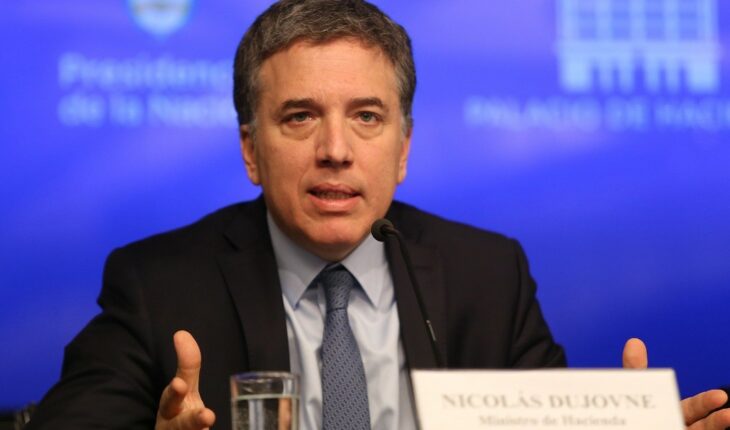The former Minister of Finance during the administration of Mauricio Macri, Nicolás Dujovne, responded to Cristina Kirchner after his speech at the CTA where he referred to the indebtedness in dollars with the International Monetary Fund (IMF), assuring that the Vice President of the Nation “does not get along” with the macroeconomy.
“It is clear that the former president with the macroeconomy does not get along,” began the former minister, pointed out as the “author” of the debt with the IMF. “In Argentina the inflationary problem is called monetary issuance, which is the daughter of the fiscal deficit and how it is financed.”
Dujovne defended his management and pointed harshly at the causes of inflation: “We began to correct the deficit, we financed it by issuing debt. At the moment this government is financing it with monetary issuance. Behind the inflationary phenomenon is clearly that process, a process of a lot of issuance of pesos that the private sector does not want them anymore and that has generated a new inflationary step. Until we correct the deficit, stop financing ourselves with monetary issuance, we will continue to have a lot of inflation. Unfortunately, this government is not going in the direction of correcting the deficit but of expanding it. When we finish our government, we end up with primary balance in the public accounts.” Next, the former official criticized the current Minister of Economy Martín Guzmán: “If we talk about indebtedness this government is the one that has created the most debt in the contemporary history of Argentina, the Treasury has issued the equivalent of 60 billion dollars of debt in what has been in management but the Central Bank in turn has generated another 40 billion dollars of debt. Argentina cannot accumulate reserves. That also happens because of the mega monetary issue. When people don’t want the pesos, they go out and buy things.”
“It is very curious that Cristina Kirchner focuses on many micro aspects of the problem and cannot relate to what happened during her husband’s government, where Argentina could accumulate reserves because it had a fiscal surplus,” Dujovne added in a dialogue with Radio Mitre, while asking the current government to start the path of “fiscal consolidation, that he does not leave all that work to the government that follows.” Finally, he questioned with a brief message the segmentation of rates that is expected to be news: “Tariff segmentation is a bad policy. Argentina needs in energy matters to have a social tariff, which then we Argentines slowly converge to pay what public services cost except the most vulnerable.”
In this note:





